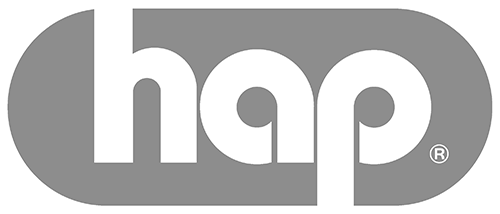The changing face of primary care medicine is making some physicians re-examine their roles in the world of healthcare. One appealing option is home health care, which is increasingly popular with patients and payers ― as well as physicians looking for greater professional rewards.
A growing number of physicians who have migrated to home health care are happy in their practices, which have evolved to meet their needs and the needs of their patients. But is home health care for you? What is required to begin practice? Will its recent growth continue? Can you find satisfaction in seeing patients in their homes instead of an office or clinic setting?
“Every home care practice is very different from each other. It is very homegrown, depending on what you really need and what resources you have,” said Ina Li, MD, clinical director of Continuum of Care and Home-Based Services at Christiana Care Health System, Wilmington, DE. Home health care tends to be more fluid when it comes to staffing but it can be hard to find programs that are like each other, she added.
If you're thinking about a change below are a few basics to consider.
Better Management of Chronic Conditions
While some medical schools and residencies are starting to offer training in home health care programs, the model is new territory for established physicians who have only been trained in hospitals, clinics, and office settings.
“If you are thinking about it, the best thing I could suggest is to find a group that is doing home health care and do a ride-along. You will know in 10 minutes if this is what you want to do,” said Gary Sarafa, MD, founder, owner, and chief medical officer of Avalon Physician Services, which specializes in home-based care in Northville, MI.
Home Health Care Training
Routine healthcare can help seniors maintain their independence and enjoy a better quality of life. Preventive care can help seniors stay healthy, reducing the likelihood of developing health problems that can limit their ability to perform everyday activities. Seniors who are regularly checked on are more likely to maintain their physical and mental health, allowing them to enjoy their hobbies, social activities, and time with family and friends.
Two other options to learn about home health care are the Academy of Home Care Medicine (AAHCM) and the Home Centered Care Institute. Both organizations offer education and information about home health care, as well as resources for entering the field.
“There are a lot of opportunities today. I have always thought that the best and brightest should be going out of medical school into this area,” said Thomas Lally, MD, founder, CEO, and chairman of Bloom Healthcare, which provides home-based care in Lakewood, CO. “Many home-based patients cost so much in the Medicare system. Ten percent of the highest-cost patients use 40% to 50% of the funding, and those are the patients we are taking care of. If you know how to manage those patients and you know how to deliver care to them well, they stop going to the emergency room as much and they stop using as much funding.”
How to Build a New Patient Base
Before making the jump to home health care, it's important to determine the area's market potential, said Dr. Lally, AAHCM president-elect.
“Where you live and what is the local environment are important because there are still places in America where you can throw a flag in the ground and start a practice with low overhead, no competition, and there is enough demand for services. Small cities and large towns really still support that,” he said. “In places where there is more competition, they are going to have more sophistication and it would probably be best for you to maybe join a team of people who are already trying to do this.”
If you have an established office practice, Dr. Li suggests easing into home health care by reaching out to patients who frequently call for help but have trouble coming to the office for a consultation. These are often primary care patients who are aging or who need help with chronic conditions.
“The easiest thing to do if the target audience is primary care is to see who is not coming into the office and then offer them a home visit,” she said. “You can easily do a house call because you know them and you know the medical issues. People love, love, love it when a provider comes by to see them at home. It is like the greatest thing ever because they really need primary care and they can't access it.”
Dr. Li started by visiting these patients when she had time, such as on the way to work or on the way home.
“As word got out and I had more and more patients, I could take a whole day just doing house calls. It just grew from there,” she said. However, she pointed out, that that balance is key. “You need to figure out how many house call patients you can manage while still maintaining an office practice.” For Dr. Li, she ultimately garnered enough home-based patients and decided to give up her office practice.
Dr. Sarafa's practice is dedicated to only house calls, which does not include nursing facilities. The group adds patients by working with office-based practices that have patients similar to Dr. Li's patients.
“There are local primary care groups that have patients they can't get to and they care about their patients,” he explained. “Some of that territoriality goes away if that patient can't get in to see them, so they will often refer to a group like ours. Word of mouth is our biggest source of new patients. It is a very sick population. I think larger practices would be wise to work with a group that specializes in care of these most vulnerable populations.”
How to Kick off Operations: Supplies and Staff
While a large practice like Dr. Lally's Bloom Healthcare has grown into an accountable care organization (more on this below) with an integrated computer system for scheduling and navigation, a small practice can operate with minimal equipment.
“It is a high-touch, low-tech endeavor,” Dr. Li said. “You need the same things a physician has in the office ― your stethoscope, blood pressure cuff, thermometer, and pulse oximeter. I carry an iPad and it is configured so I can get into our EHR system and then I can chart when I am in the patient's home. I can order medication etc. right there. I tell people I am just bringing a primary care office into the patient's home. It is not hard to figure out what I need every day.”
Dr. Sarafa's Avalon practice is similar to an office-based practice. He is one of the physicians, and is supported by nurses, occupational therapists, speech therapists, and social workers who also visit homes, just as those staff members work with patients in an office setting. An office staff handles all payments, billing, and scheduling. The traveling staff has a computer to connect to the practice's EHR system.
Both Dr. Li and Dr. Sarafa use their own vehicles and Google Maps to navigate to patient homes, and they try to work within zip code areas. “This morning, we had eight house calls. I had to route it and map it out. That is a typical day for us,” Dr. Sarafa said. “Most groups reimburse providers for mileage in some way or other, maybe in the form of increased reimbursement as a provider. Every practice is unique in how they design that.”
Reimbursement Comes with More Focus on Quality, not Quantity
A key challenge to starting a home health care practice is maximizing reimbursement because the volume of patients can be much lower than an office-based practice. Northwell Health, a large home-based care practice in downstate New York has 11 teams of providers, each seeing about six patients a day, said Konstantinos Deligiannidis, MD, MPH, medical director of the Northwell House Calls Program. A primary care physician in a typical office setting may see 20 to 40 patients a day.
“In our setting, we can't be driven by volume because of the nature of our work so we have to have value-based arrangements,” Dr. Deligiannidis said. “Oftentimes practices go into value-based contract arrangements with insurers and payers to demonstrate value to them for the reduction of readmissions, admissions, and ED visits etc. By reducing those costs for these high-cost patients who have chronic medical conditions and are homebound, there is a payment that is given to practices in exchange for the value that is demonstrated to the insurers.”
Home-based care practices also can be reimbursed through fee-for-service arrangements and by demonstrating quality practice at a savings to special demonstration programs, federal funding programs, and insurers, he said. Some practices also are additionally supported by philanthropy.
As an accountable care organization, Bloom Healthcare can maximize reimbursement. Each of its teams is limited to treating about 10 patients a day because of driving time and spending a lot of time in patients' homes, Dr. Lally said.
“Our accountable care organization allows us to get paid on quality,” he said. “So now we are getting paid not on volume but the fact that our patients don't have to go to the hospital and they are happier, and that is where we actually make all of our money and how we are able to increase the compensation for our providers and make it attractive for them. We incentivize them on the performance of their panel of patients so that if their patients don't go to the hospital and utilize services, they are going to have a large bonus. We really try to make it very individualized at the provider level.”
As for related costs, note that Medicare does not allow physicians to be reimbursed for their mileage.
Personal and Professional Benefits
Ultimately, physicians making house calls are compensated with a positive work environment and accomplishing their main goal as doctors ― making patients' lives better.
“Doing those house calls is so enriching for me personally and professionally,” Dr. Deligiannidis said. “That's what I want to do. I also have come to realize this is a need for all settings ― urban, suburban, and rural…. [and] as our population becomes older and burdened by chronic medical conditions that render them homebound, the need for home-based primary care is just going to get greater across all settings.”
If you or a loved one are interested in our in-home physician services, call us at (248) 277-3110 or click the "Schedule Consultation" button below.





